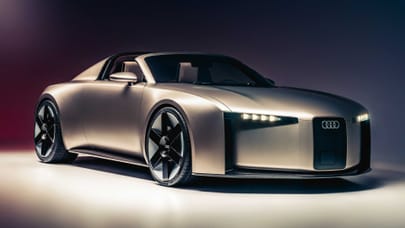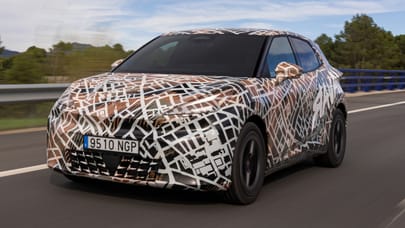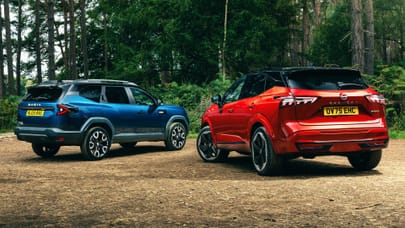
Richard Hammond on: speed-traps
I like a well-used road. I don't mean a worn-out one with potholes big enough to lose a tractor in; I mean one that you can tell people use every day, and with which those regular users become more familiar than they are with their own feet. It becomes a sort of strung-out community, a long, thin village hall where folks go every day for the briefest of meetings with others. And the road itself becomes a character - a friend, even.
I used to know every single millimetre of the A61 between Ripon and Harrogate. At night, I could drive the length of it in my head to help me sleep. Driving to college in the morning, I could tell you if it had been windy in the night because I could spot when familiar crisp packets or grass blades had moved in the verges.
The A49 between Hereford and Ross-on-Wye where I live now has a similar quality. Driving it last week, I knew by some innate sense that those around me enjoyed a level of intimacy with the road's curves and dips to rival that of a painter's with his model. And when cars coming the other way flashed their headlights, I knew immediately that they were warning their fellow travellers of a speed camera up ahead. It's not actually possible to flash headlights furtively - the speed of light is kind of an absolute - but somehow these drivers managed it, ducking behind the wheel and plucking at the light stalk as delicately as an inquisitive panda at a food blender.
It becomes a shared thing, a road like this; those who use it regularly are bonded by it and become protective of it. The appearance of a mobile speed trap on it marks an invasion and is resented. The headlight flash is the equivalent of a meerkat's warning squeak at the sight ofan eagle. But, of course, unlike a meerkat alerting its family to the danger from the sky, it's illegal for us to flash our headlights to warn other drivers of a speed camera; people have been prosecuted for it. Which makes the efforts of those doing just that to warn other drivers of the danger ahead all the more valiant and noble. And it also suggests that the police might be using the wrong tactic here.
I've never read one of those brainy business books where they explain how corporate tactics can be extrapolated from the way a cactus survives in the desert, or a hostile takeover bid can be successfully modelled on a Viking's cutlery drawer, so I certainly don't wish to claim any sort of expertise as a tactician or strategist. But, if the idea of speed cameras is to slow us down at accident black spots - which is where they put them, apparently - then what those drivers were doing was working in favour of the authorities. We were slowing down. I doubt that anyone triggered the camera all day. Success, surely? An endless stream of happy, law-abiding drivers passing by at or below the speed limit. Oh, how the heart of the chap in the van must have soared with righteous joy as car after car after car failed to trigger his gun. "Why", he must have been asking himself, "am I here?"
Why indeed. It must be very expensive to keep a man in a van all day, waiting for speeding cars. He must be provided with snacks and a newspaper and some Bovril. Would it not be better, tactically speaking, for the authorities to actively encourage us to develop our natural, meerkat response so that we continue to alert one another to the danger ahead?
Then, after a week or two, they could leave all the mobile-speed-camera vans in the garage and send one bloke out in an anonymous car to drive a route taking in the approaches to all the regular speed-trap sites, the accident black spots where they put the cameras, flashing his lights like a meerkat squeaking at a falconry display.
Other drivers, and especially those who luxuriate in the companionship and community of a regularly driven road, will know instantly what it means and slow down, and everyone will be happy.
This will be much cheaper than paying for a burgeoning fleet of vans with men in them eating crisps, reading newspapers and drinking Bovril, it will achieve the desired effect of slowing us down where it is dangerous for us to be going quickly, and it will engender a much-needed sense of community and mutual caring. I thank you.
Top Gear
Newsletter
Thank you for subscribing to our newsletter. Look out for your regular round-up of news, reviews and offers in your inbox.
Get all the latest news, reviews and exclusives, direct to your inbox.
Trending this week
- Car Review
BMW iX3








